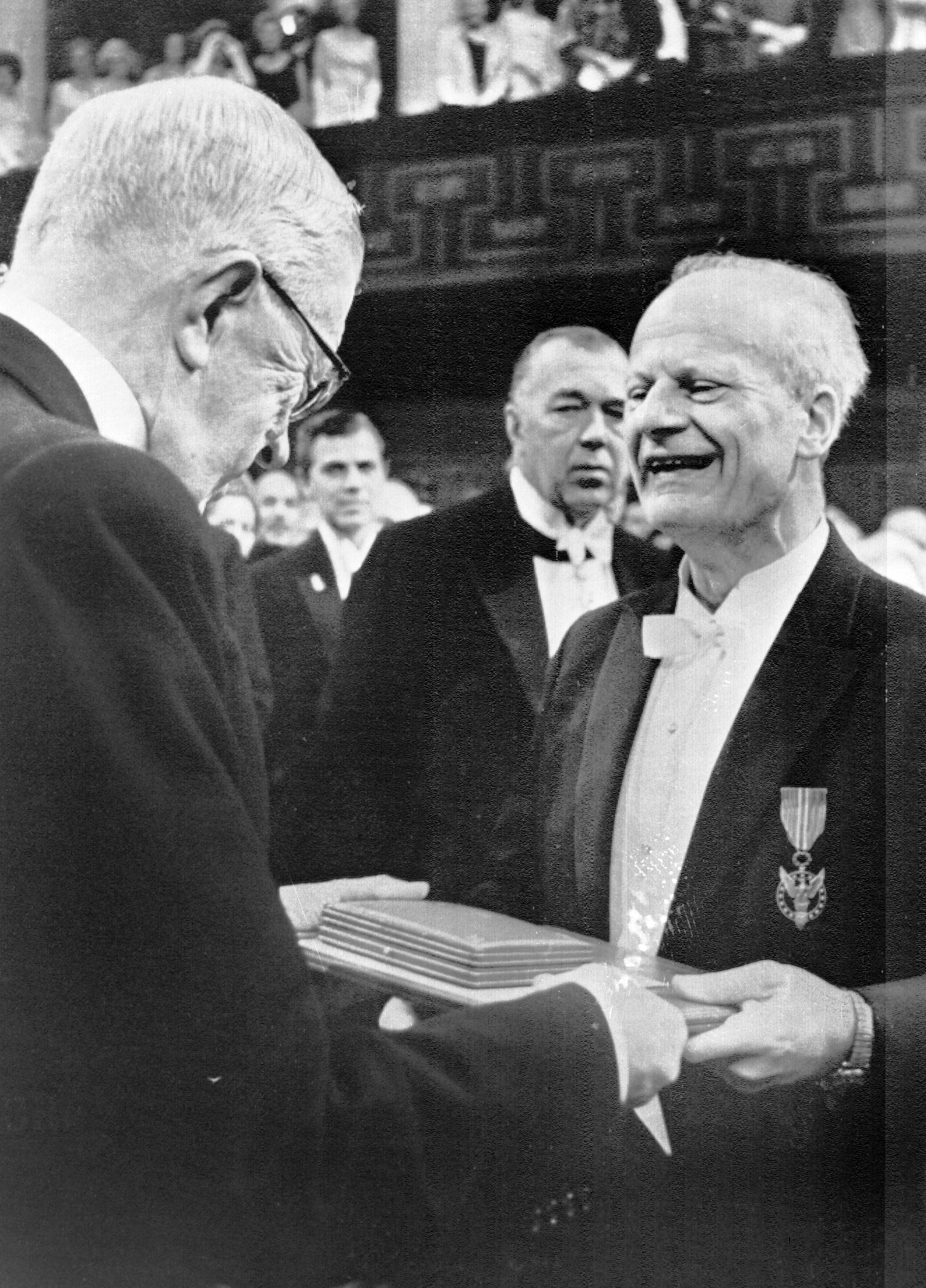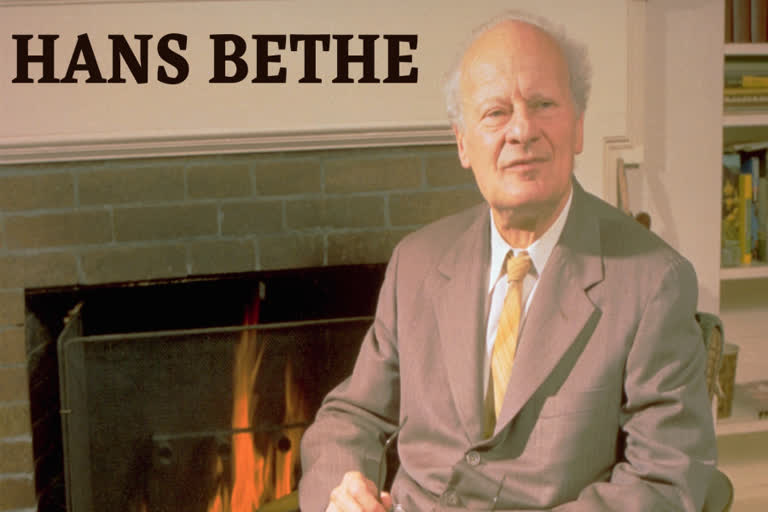Full Name: Born on 2nd July 1906, in Strasbourg, Alsace-Lorraine, Hans Albrecht Bethe was a German-American nuclear physicist and winner of the 1967 Nobel Prize in Physics.
From 1924 to 1926, Bethe studied at the University of Frankfurt. In 1928 he studied at Munich and obtained his PhD in theoretical physics with Professor Arnold Sommerfeld. Hans Bethe also became a Privatdozent at the University of Munich from 1930 to 1933.
He was an Acting Assistant Professor at the University of Tubingen in 1932. Hans Bethe lost the position due to the advent of the Nazi regime in Germany.
After becoming an American citizen and gaining his security clearance, war work took him to the Radiation Laboratory at MIT, working on microwave radar. After spending the summer of 1942 at the University of California, Berkeley working on a design for the atomic bomb, Bethe was selected by J. Robert Oppenheimer to lead the T (Theoretical) Division of Los Alamos. He and his wife Rose moved to Los Alamos in 1943. Their son, Henry, was born at Los Alamos.
As theory chief, Bethe oversaw and coordinated the work of the various theory groups working on creating a model for how neutrons diffuse through a critical mass, figuring out how to calculate the efficiency of nuclear explosions, determining critical masses and the limits of sub-critical ones, understanding how liquids and gases behaved in fractions of microseconds at immense temperatures and pressures and designing an initiator.
Bethe completed the theoretical work on the implosion method used in the Trinity test and the “Fat Man” weapon dropped on Nagasaki, which validated his results. He also studied the hydrodynamic aspects of implosion, the neutron initiator, and radiation propagation from an exploding atomic bomb.
Scientific Contributions
Bethe was a professor at Cornell for his entire career, except for two sabbatical leaves and his absence during World War II when he worked on the Manhattan Project. At the end of World War II, Bethe worked on the United States' development of the hydrogen bomb, although he was opposed to the weapon's development and hoped that he would show that the H-bomb was impossible to build.
Between 1956 and 1964, he served on the President's Science Advisory Committee, and in 1958 he headed a presidential study of nuclear disarmament. He helped to negotiate the 1963 Limited Test Ban Treaty with the Soviet Union and acted as an informal advisor to Presidents Eisenhower, Kennedy, and Johnson. Later, he campaigned against President Ronald Reagan's proposed Strategic Defense Initiative missile system and advocated for the peaceful use of nuclear energy.

In 1967, Bethe was awarded the Nobel Prize in Physics for his work on how stars produce energy.
Impact and Legacy
Hans Bethe was the head theoretician on the Manhattan Project and was a key contributor to the atomic bombs that killed more than 100,000 people and wounded, even more, when they were dropped on Hiroshima and Nagasaki during World War II. Bethe also helped to develop the hydrogen bomb, despite the fact that he was opposed to the development of this type of weapon.
For more than 50 years, Bethe strongly advised caution in using the power of the atom. He supported nuclear nonproliferation treaties and frequently spoke out against missile defence systems. Bethe also advocated for the use of national laboratories to develop technologies that would lower the risk of nuclear war rather than weapons that could win a nuclear war.
Hans Bethe's legacy lives on today. Many of the discoveries that he made in nuclear physics and astrophysics during his 70+ year career have stood the test of time, and scientists are still using and building upon his work to make progress in theoretical physics and quantum mechanics.
Hans Bethe died on 6 March 2005 at his home in Ithaca, New York. He was 98 years old.
Also Read: Samsung Galaxy S21 Ultra wins best smartphone award at MWC 2021
(Inputs from IANS)


